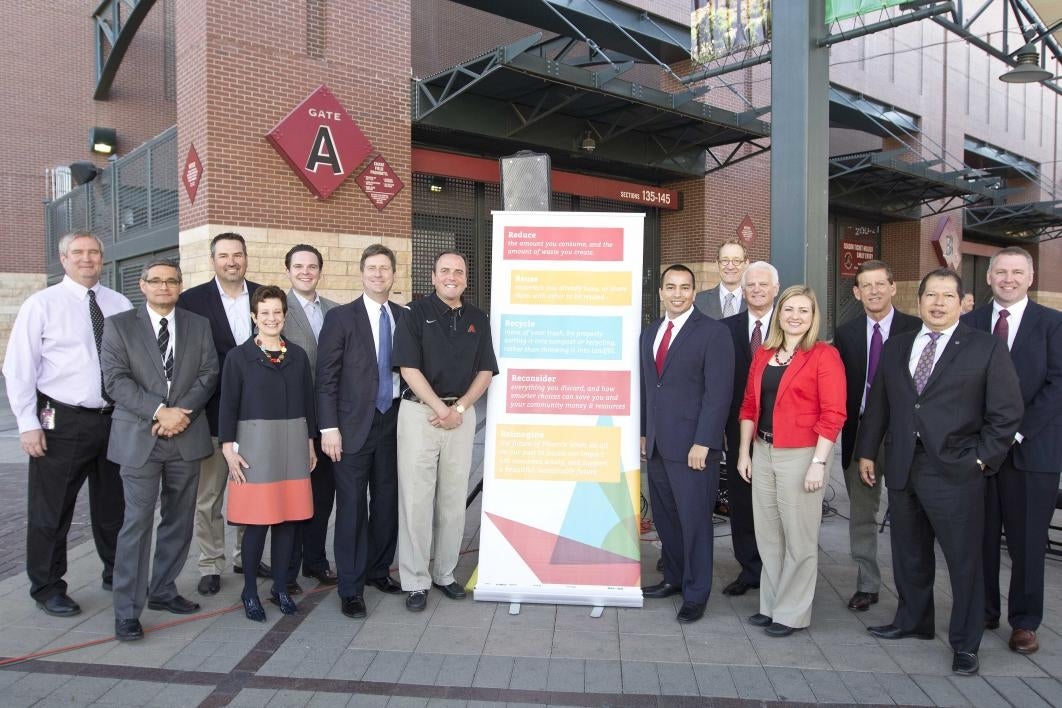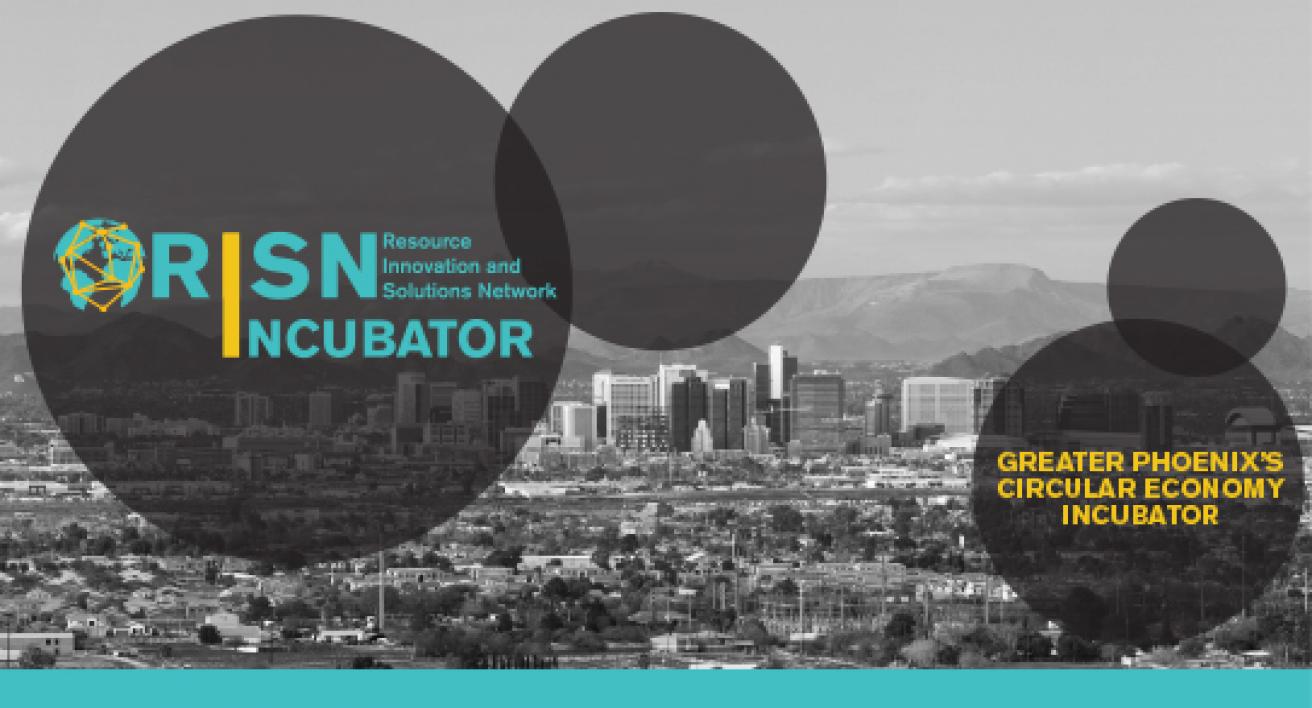ASU, city of Phoenix launch new innovation incubator program

Photo courtesy of City of Phoenix Public Works
Arizona State University, twice named the most innovative school in the nation by US News and World Report, in collaboration with the city of Phoenix, named the Top Performing City overall by Governing and Living Cities, announce a call for innovators and entrepreneurs to participate in the RISN Incubator, a diverse solutions business development and accelerator program.
Selected ventures that focus on waste diversion and improvements in processing or utilization of waste as a raw material for new products or energy will have access to resources and support from ASU and Phoenix to develop new solutions that develop products and services that contribute to the regional development of a vibrant circular economy. Venture concepts eligible for the incubator include, but are not limited to: conversion of solid waste into new material or energy; services that divert, reuse, or recycle; software applications around sustainability (waste, organic material, reuse, recycling); and design services that focus on sustainability.
“Fostering public-private partnerships, as well as embracing new and innovative ideas, is integral in achieving Phoenix’s 40 percent waste diversion goal by 2020,” said Ginger Spencer, Phoenix Public Works director. “An incubator, where great minds can get together to grow ideas and find unique solutions, is going to be a critical piece in developing a robust circular economy in our city.”
Through funding provided by the U.S. Economic Development Administration’s i6 Challenge and from support of the Resource Innovation and Solutions Network (RISN), a public-private network established in partnership between ASU and Phoenix, the RISN Incubator will assist and mentor aspiring new ventures within a wide range of developmental stages.
The RISN Incubator is accepting applicants who are in the early stages of development. Selected ventures will receive training and services including dedicated venture mentors who will guide their advancement and facilitate access to technical experts, business plan development and investor network management training, access to feedstock from Phoenix’s waste transfer station and a process for continuous evaluation and pre-qualification for funding opportunities.
The priority waste feedstocks that the successful ventures will have access to include plastics, batteries, carpeting and carpet foam, broken furniture, mattresses, textiles, food waste, compost and plastic film. Innovators may also respond to an open call for other materials or items in the waste stream.
“ASU identifies innovation and the support of new ventures as essential to the development of a strong economy at local, regional and global scales,” said Ji Mi Choi, associate vice president of ASU’s Knowledge Enterprise Development, leading Entrepreneurship and Innovation which includes the new RISN Incubator. “Between the expertise at ASU and the material and practice resources at the city of Phoenix, we are excited to work with the ventures that will be creating exciting new solutions to our waste and energy challenges.”
Joining ASU to lead the RISN Incubator as its director is Alicia Marseille. Marseille brings a wealth of start-up and economic development experience from her recent position as director of the U.S. Small Business Administration’s Women’s Business Center, AWEEc. Marseille will apply her decade of national and international background in public/private partnerships, emerging markets, growth strategies and financial modeling to the RISN Incubator’s development.
This call for innovators and entrepreneurs is open until July 24 with the challenge kicking off Aug. 25.
For more information including the application, visit RISNincubator.asu.edu.
More Environment and sustainability

Public education project brings new water recycling process to life
A new virtual reality project developed by an interdisciplinary team at Arizona State University has earned the 2025…

ASU team creates decision-making framework to improve conservation efficiency
Conserving the world’s ecosystems is a hard job — especially in times of climate change, large-scale landscape destruction and…

Mapping the way to harvesting water from air
Earth’s atmosphere contains about 13 trillion tons of water.That’s a lot of water to draw upon to help people who are contending…




